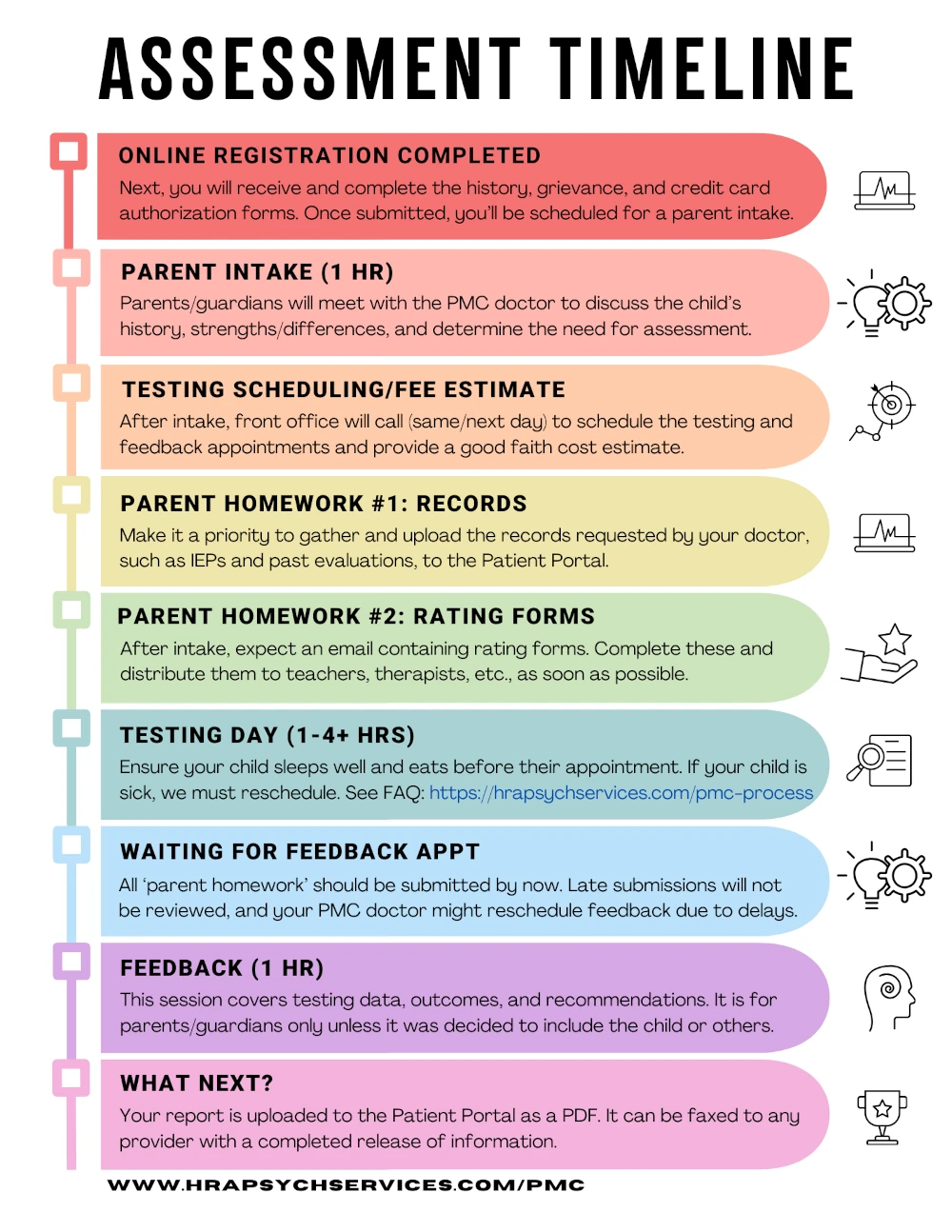

Policies
Consenting Parties
We require consent from each party with legal custody of the child before proceeding with the intake process.
Intake and feedback sessions for multiple household families
Our priority is to deliver exceptional care to our patients and their families. Due to the growing demand for our services, we have instituted a policy that limits the intake sessions to a single appointment for all participating parents or caregivers, regardless of household. We are conducting the feedback session in this way as well. This approach ensures consistent and comprehensive communication across households.
While our staff will do their best to communicate with all custodial parties, it is ultimately the responsibility of the family to coordinate appointments. We recognize the challenges of coordinating schedules across different households. To facilitate this, we offer both in-person and virtual session options, depending on insurance coverage, to provide greater flexibility for all parties involved to attend together.
In cases where a joint session is not feasible, we recommend seeking assessment services at another facility that can accommodate separate appointments. We appreciate your understanding and cooperation as we work to efficiently serve all our patients and their families.
No Show & Cancellation Policies
Our no show and cancellation policies can be view on our Payment page.
Ready to get started?
Complete the New Client Registration for HRA Psychological Services and our office will contact you for scheduling.
Frequently Asked Questions
How do I know if I need an assessment?
Some people are referred by another provider who believes it may be beneficial whereas others come in self-referred. You don't have to know if you need an assessment. That's what the first appointment is about.
I don't even know what my child needs assessed for. What should I do?
Families aren't expected to know. We're here to help with that. But if you do have specific concerns, please bring them up with your clinician.
What do I tell my kid?
It depends on your kids. We often try to help them see the assessment is to help us understand them better rather than "what's wrong with them". We talk about how brains are like fingerprints and everyone has a different one. Some kids are happy with a simple explanation that this will help with whatever they have concerns about. We try to relate it to their own concerns. We recommend just reinforcing that they do their best.
Will I be in the room doing testing?
No, assessments are completed one-on-one with the clinician unless a different arrangement is determined ahead of time.
Can we bring snacks, a drink, fidgets, and comfort items?
Yes. Bring what makes your child feel comfortable, but not distracted. No electronics unless they're turned off.
Do I need to wait in the waiting room?
It depends. Sometimes, the adult bringing the child will need to stay in the waiting room and other times, a parent may be able to wait in their car or run a quick errand.
What if they have a great day that day?
Testing is a snapshot of a child's behavior. This is why we love information from parents, school, therapist, etc. On the same note, testing is about skills. We actually like to see kids at their best because it tells us if they have the skills.
What if they are having a bad day?
Please don't bring your child in if they're sick, in notable pain, or in intense emotional distress. If this is the case, we will not be able to complete their assessment and you will need to reschedule. We also would prefer that they maintain their typical routine so please don't schedule a sleepover the night before the assessment, but feel free to plan a fun activity for after!
We're done with the process. Now what?
There will be a number of recommendations in your report. Your clinician will have highlighted the most important within the feedback, but read through the recommendations as they will include referrals, resources, and ideas for skill development and reinforcement. Assessment is a great tool to understand more and provide direction for next steps, but the next steps promote growth.
